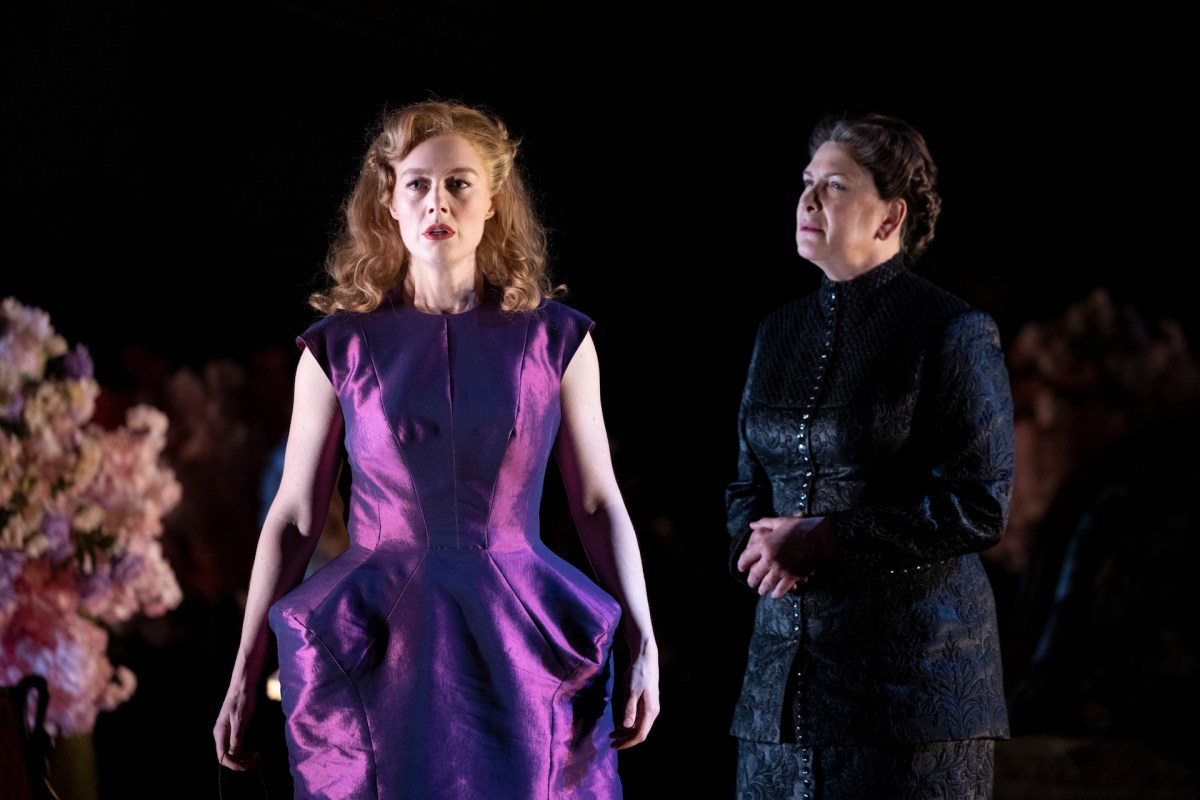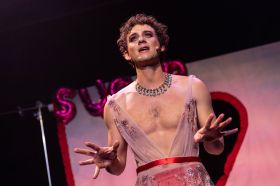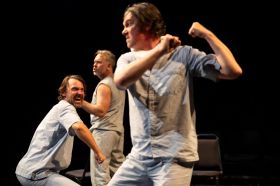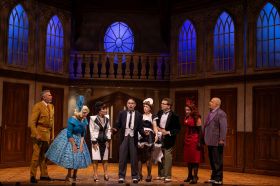Rebecca – quick links
The incomparable Nikki Shiels emerges out of darkness, an eerie ghost light burning in the near distance as a clamouring absence looms large behind her.
‘Last night I dreamt I went to Manderley again,’ her unnamed woman says, emitting the astonishing opening line of Daphne Du Maurier’s deliciously disturbing 1938 gothic novel, Rebecca.
That lilting rhyme, burnt into our collective consciousness like quicklime, strikes at the hollow heart of Manderley’s cursed stately pile. Du Maurier herself said that the place is, ‘As much an atmosphere as a tangible erection’.
Rebecca: a new adaptation
MTC’s artistic director Anne-Louise Sarks leans into that ether with her at once sprawling and yet claustrophobic new adaptation, previously tackled for the stage by Du Maurier herself and, of course, by Alfred Hitchcock on the silver screen.
Silently swooshing flats swoop from the wings of the Sumner Theatre to stir up this stifling oblivion, an all-encompassing gloom that threatens to drown our narrator, clad in a shapeless cricketer’s jumper and boxy dress, and anyone who lingers in this forsaken place.
One moment she is stultified, stuck by the side of her distanced husband, the surly, sealed-in-aspic Maxim de Winter (Stephen Philips). The next, we’re swept backwards as she’s struck senseless by his presence across a Monte Carlo dining room, while bound as a companion to Pamela Rabe’s brash Mrs Van Hopper, a grasping American snatching at de Winter’s wealth and status.
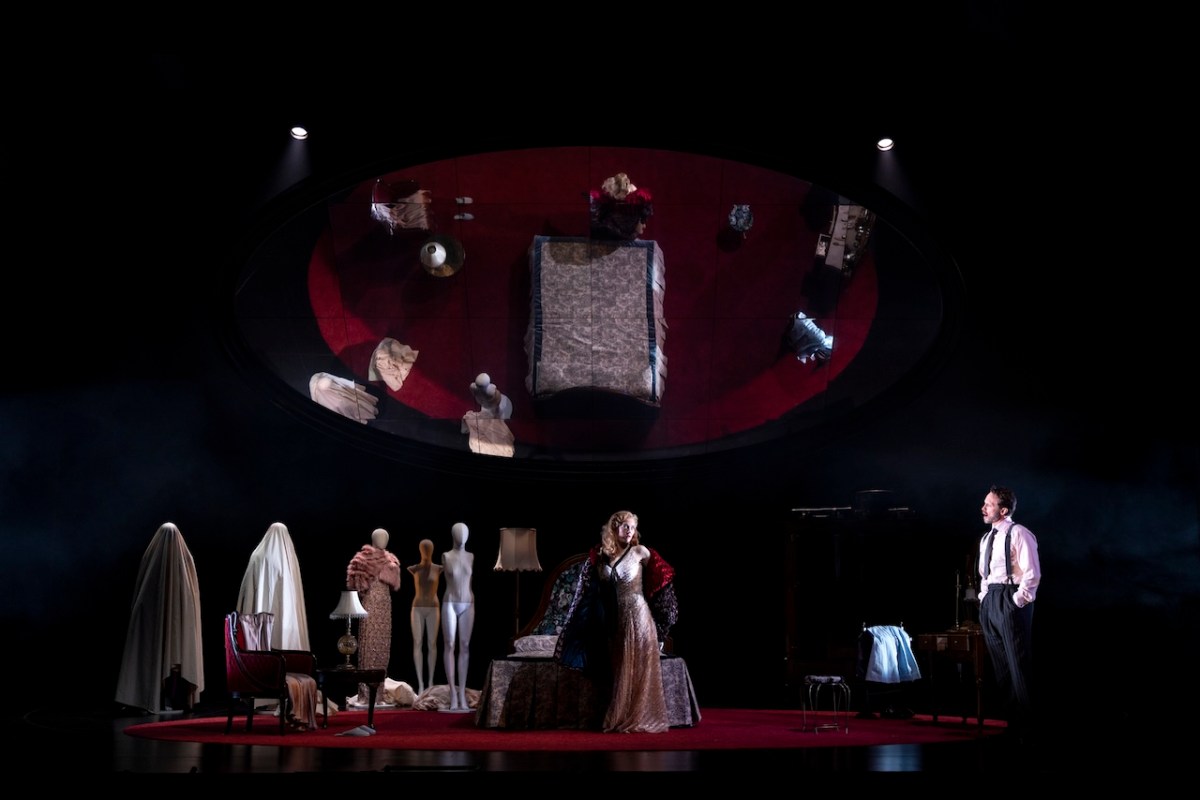
Bowled over by Maxim’s attentions on long drives and ominous glares over precipitous cliffs, the woman falls for an idea of him utterly divorced from reality, agreeing to marry him. Startled by his suddenness, doubts soon break the still surface between them.
Rebecca: to Manderley
And so we arrive, via a truncated honeymoon in the teeming throng of Venice’s peak season canals, in the rugged beauty of Cornwall and Maxim’s ancestral home. The one he once shared with Rebecca, the ghost that inescapably haunts the new Mrs de Winter, Maxim and his always hovering housekeeper, Mrs Danvers (also Rabe).
Tony Award-winning designer Marg Horwell, envisioning both Rebecca’s set and costumes, summons its ‘atmosphere’ ingeniously. Manderley’s echoing halls are as much what’s not there as what is, exposing most of the stage’s black box. Fourth wall-diving stagehands emerge from the inky sea bearing pyres of desiccating flowers, ossified furniture and shrouded mannequins on which Rebecca’s finest hang.
Rebecca: costumes
Horwell’s magnificently realised, 1930s-inspired costumes hem them into immaculate fashion as glamorous as it is imprisoning. There’s a buttoned-up stiffness to Maxim’s waistcoats and velvet blazer, to Danvers’ crypt-like black lace and how the woman casts off her chunky knit, revealing a corset as she slips Rebecca’s cold, lifeless silk.
Sarks indulges a welcome exploration of the text’s latent queerness that a Code-bound Alfred Hitchcock could not fully, with Joan Fontaine’s Mrs De Winter and South Australian actor Judith Anderson’s Mrs Danvers. A fascination with these gilded caged creatures and their incestuous cloistering that teases out Danvers’ undying devotion to Rebecca, inverting her possessive passion.
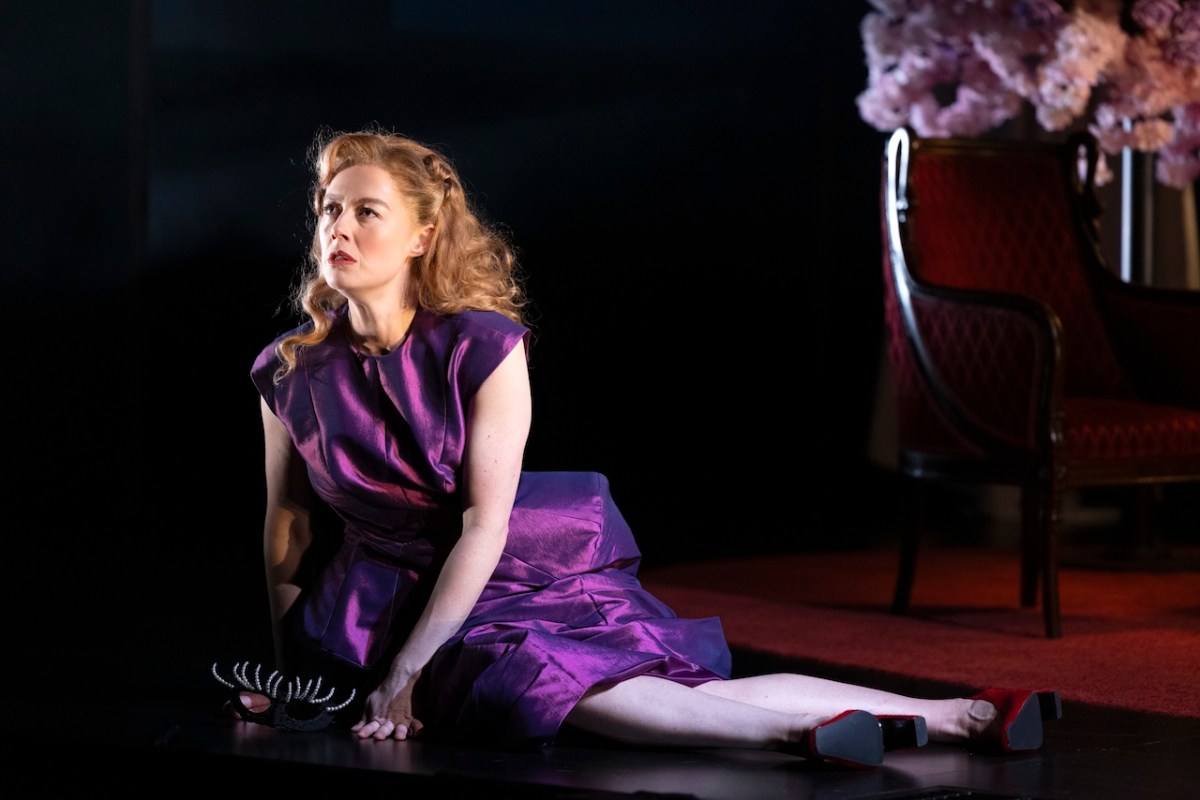
At first repulsed by the impostor who fondles Rebecca’s belongings in the shuttered west wing boudoir, Rabe’s buttoned-up Danvers evinces an inescapable eroticism in how she undresses and re-dresses this invasive simulacrum, far more so than the clumsily overt scenes of our narrator’s self-pleasure that follow.
A sequence in which they lie side by side on Rebecca’s bed, Danvers’ arms crossed corpse-like on her chest as one of the woman’s lies outstretched, recalls another glorious gothic in Emily Brontë’s twinned coffins for Wuthering Heights’ ill-fated Catherine and Heathcliff.
Later, as the new Mrs de Winter seizes more control over Manderley at a terrible cost, Horwell increasingly ensnares her claim in choking weeds that snake around the room, as if Ophelia’s watery grave awaits. An elemental fate bound up with that impossible dream of a return to Manderley.
Rebecca’s frostbitten chill in the air is amplified by Grace Ferguson and Joe Paradise Lui’s shivering sound design and Paul Jackson’s dust-mote-igniting lighting. When the final act spins into Du Maurier’s macabre twists of the knife, a scarlet rug laid under a vast oblong mirror makes the most of MTC’s revolving stage when it appears to pool like blood.
Rebecca: a little choppy
While this is, undoubtedly, a handsome production, some of Du Maurier’s mettle is muted in Sarks’ read that, though not short at an hour and 45 minutes without interval, feels a little choppy.
It’s an understandable urge to obscure Maxim, a preposterous man sulkily defeated by inescapable history. But in practice, it doesn’t give a thoroughly wasted Philips much at all to do, paling in comparison to a smouldering Laurence Olivier and losing something of the novel’s hopeless embrace. One can be both repugnant and ravishing.
As our window on this emptiness, Shiels nimbly manoeuvres from naif to negotiator, desperately manipulated to proactively destructive via subtle shifts in stance and intonation that slice through the text’s skin as stealthily as a paper cut.
Rebecca: in praise of Rabe
Rabe is a mighty performer, another of our finest, and so the two should be perfectly paired. But Sarks has the former play the stealthy Danvers a little too whisper-smooth to be truly menacing. An odd imposition that undermines Mrs de Winter’s repeated claims of being scared by her, stultifying the story’s strength.
Rabe’s comic turn, as the blustering Van Hopper, is spot on, however, as is her firm grasp of Maxim’s haughty sister, Beatrice. But the latter is too briefly glimpsed.
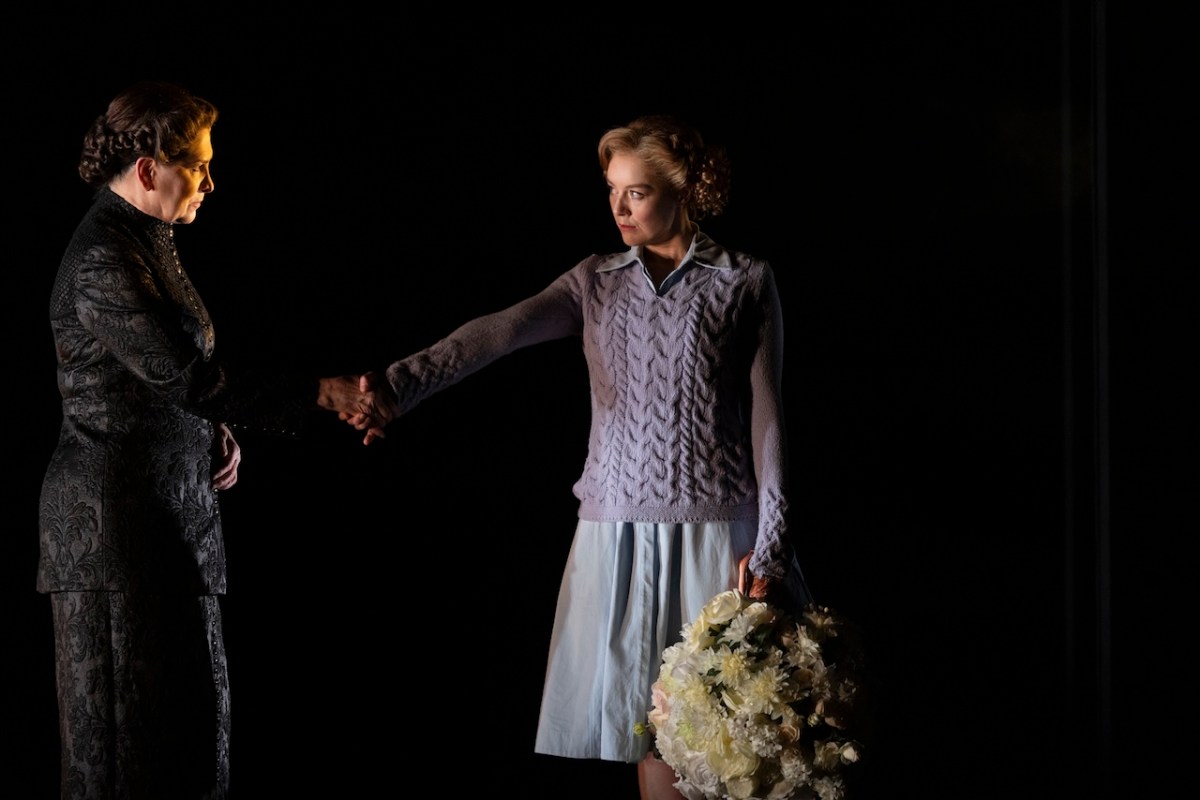
Toby Truslove, in the dual role of Rebecca’s rakishly rancid cousin, Jack Favell, and Maxim’s trusted right-hand man, Frank Crawley, is both impish and obsequious, making more of scant offerings than Philips can.
With so much meat cut off the bones, it begins to feel like this Rebecca would have been stronger as a tighter two-hander, a smothering duel between Shiels and a less reined-in Rabe. There’s a welcome wickedness to Sarks’s retooling of the infamous costume ball and a glowering portrait that omnipotently scowls from one of Manderley’s walls.
However, a decidedly odd choice in realising the tainted dream’s blazing end feels more like an embarrassing prop malfunction here.
In a year in which Malthouse Theatre’s production of Du Maurier’s The Birds (also iconically adapted by Hitchcock) didn’t quite take full flight, Sarks’s Rebecca in no way goes up in smoke like the Netflix abomination. But it does fall a little short, with her discomfiting stirring of the story’s murky eddies a little too shallow in the final stretch.
Those less familiar with the story might struggle to tie up all its loose threads. Still, Du Maurier’s dark and deathly dream will always be one worth falling into.
Rebecca is at the Sumner Theatre, Melbourne, until 5 November 2025. Find out more.

